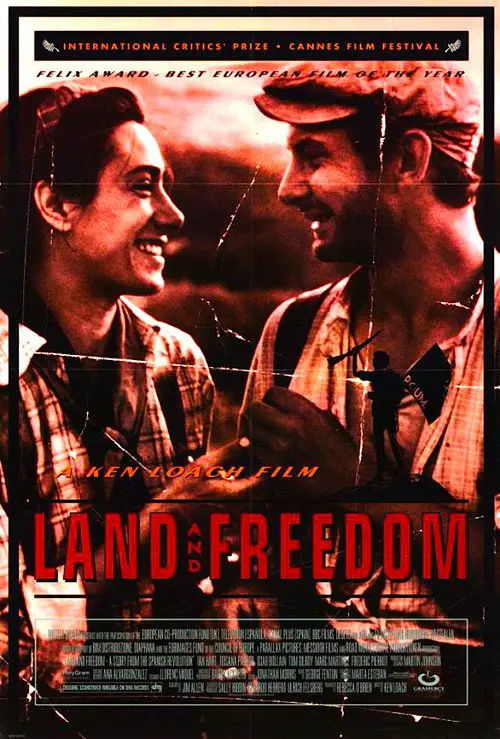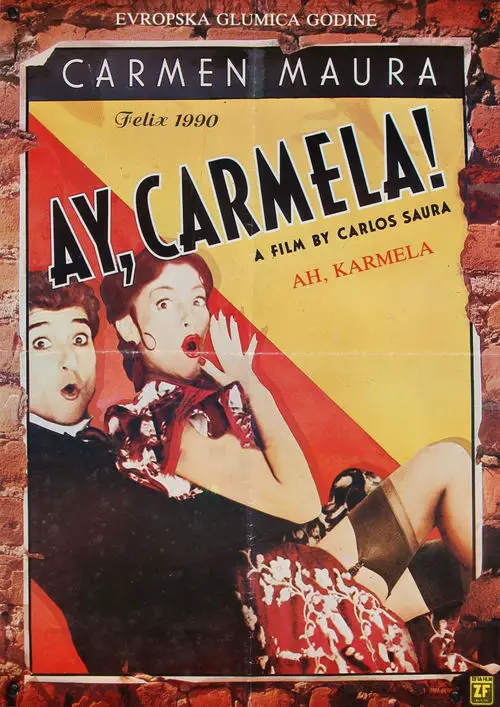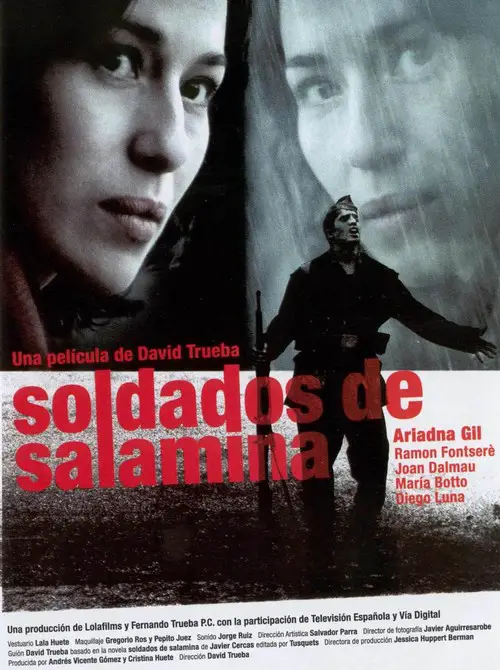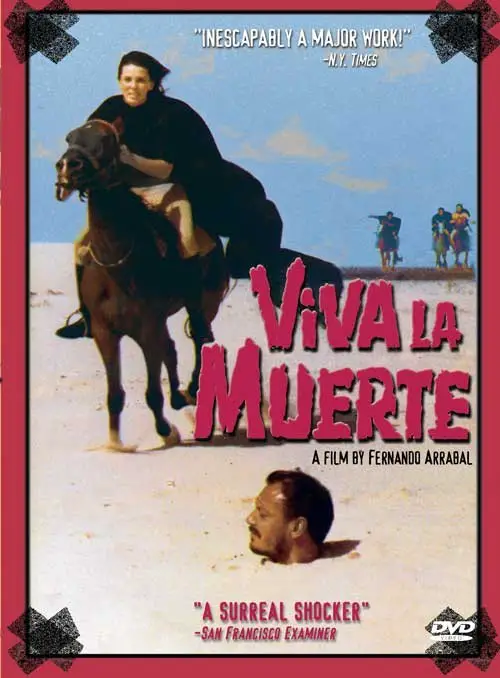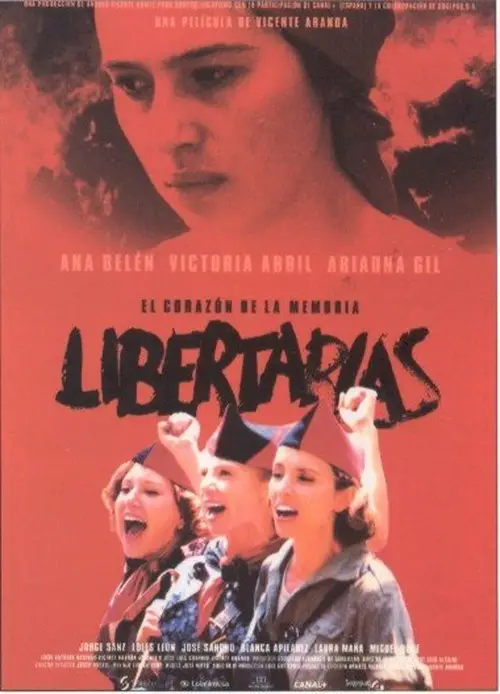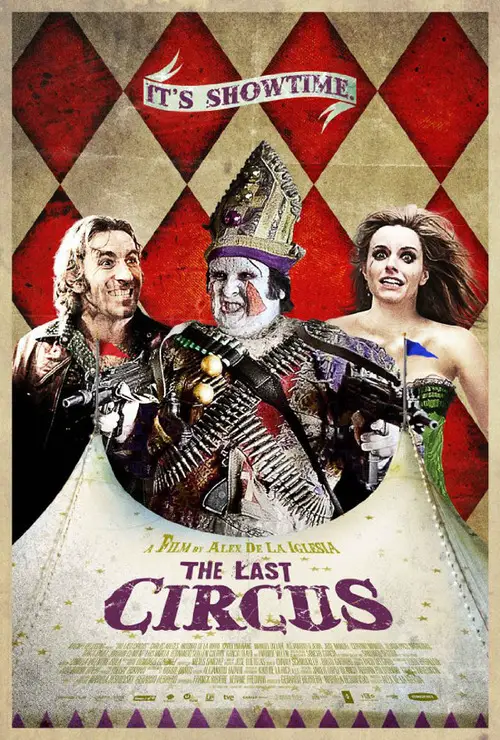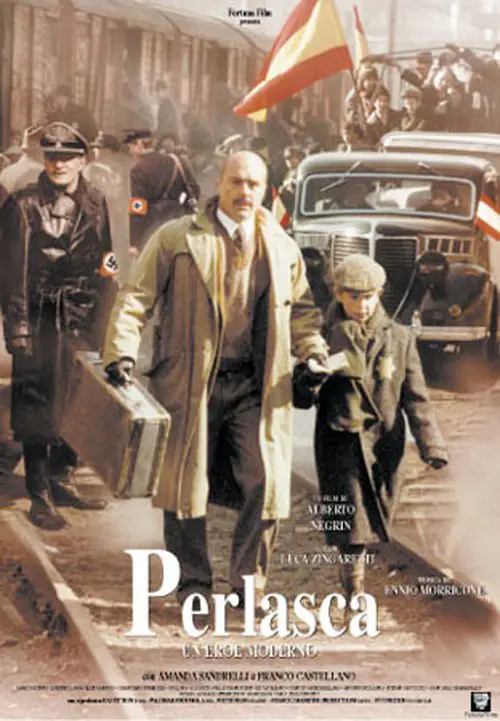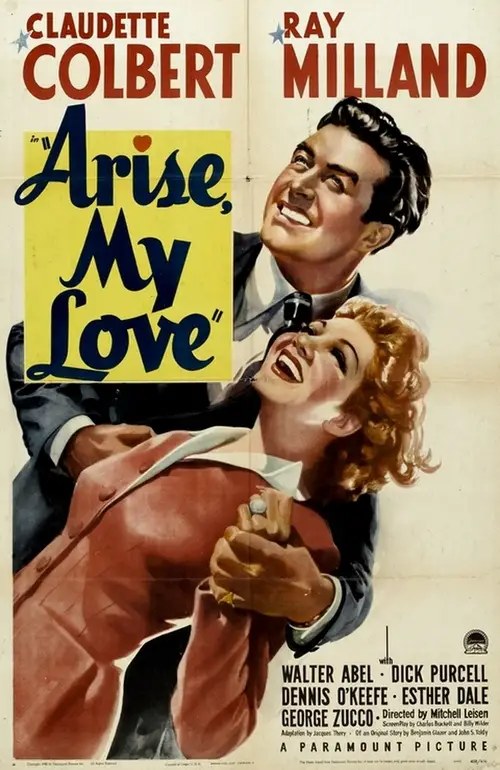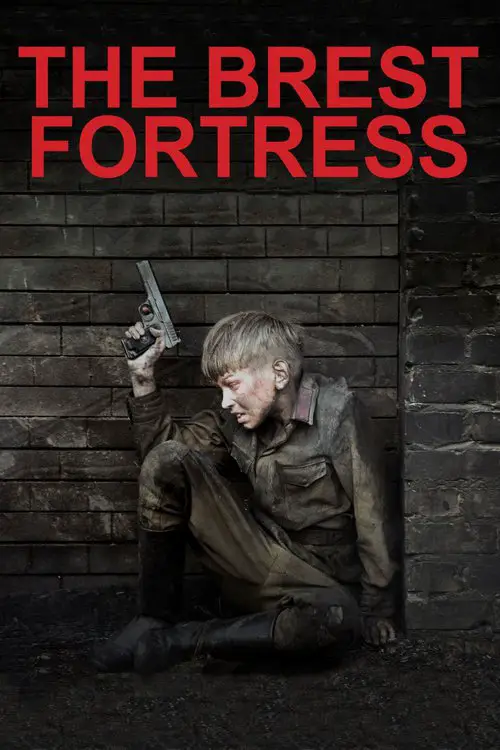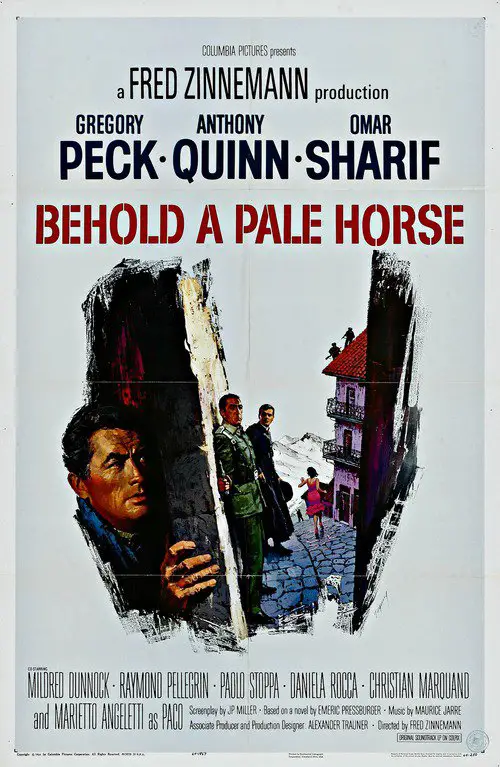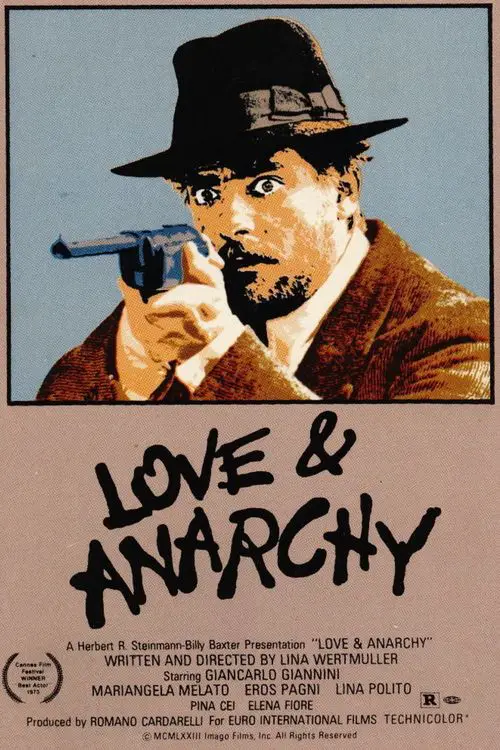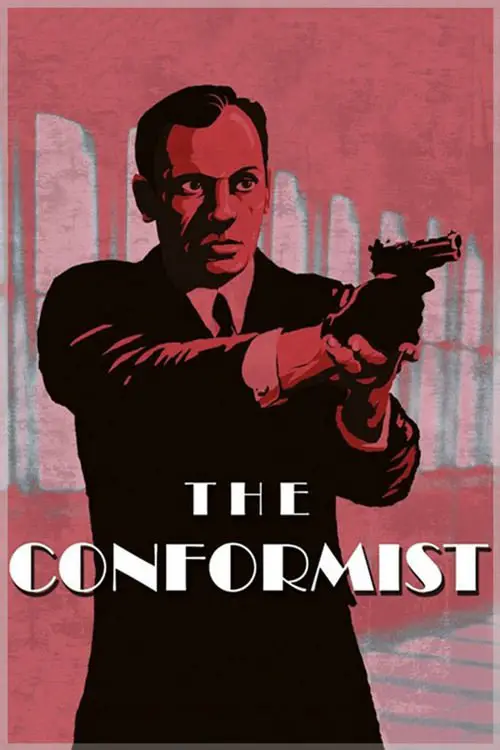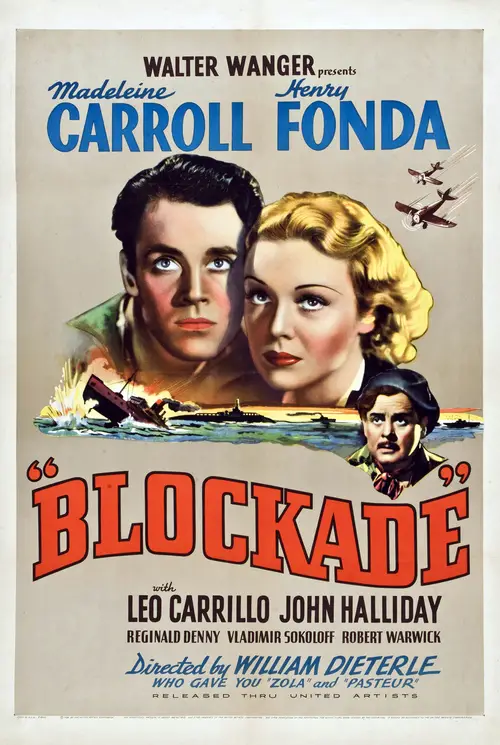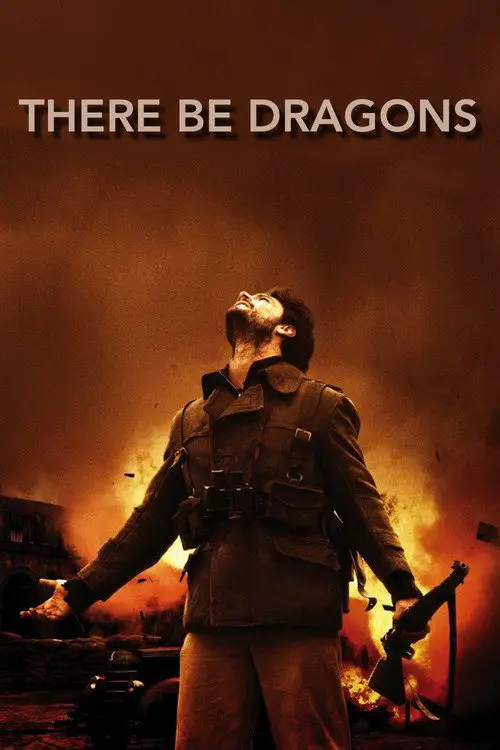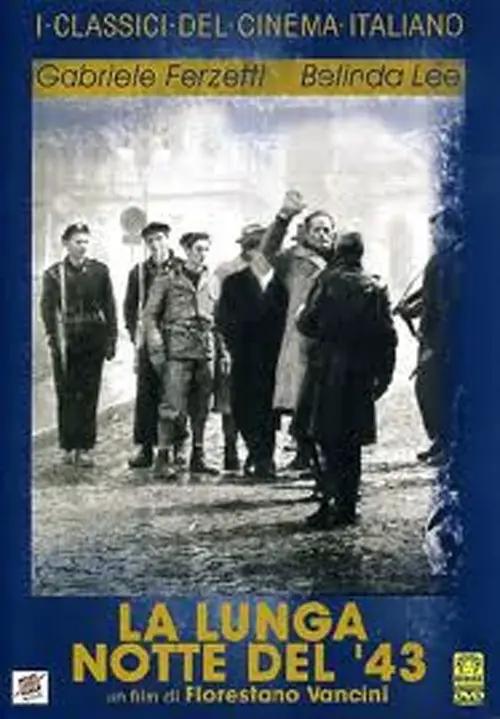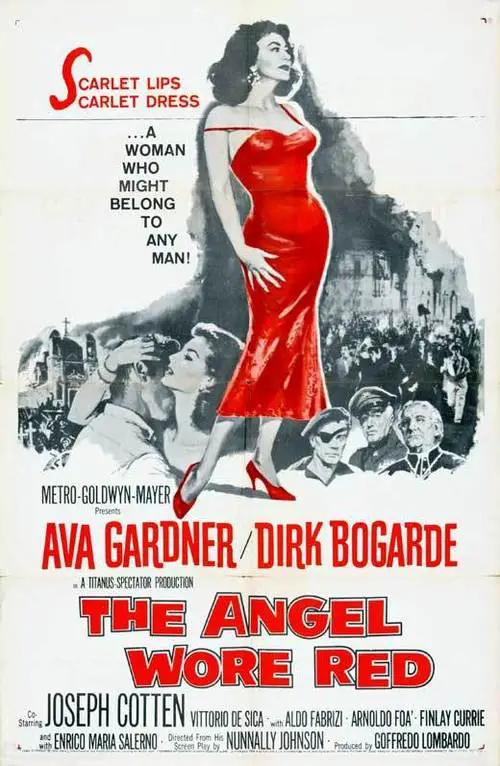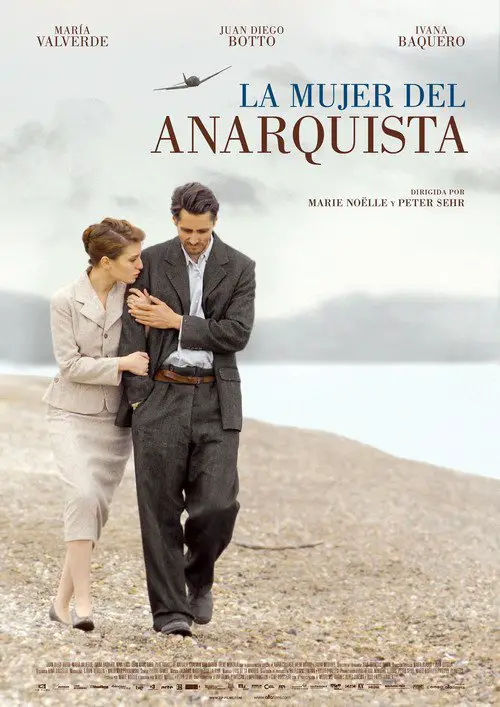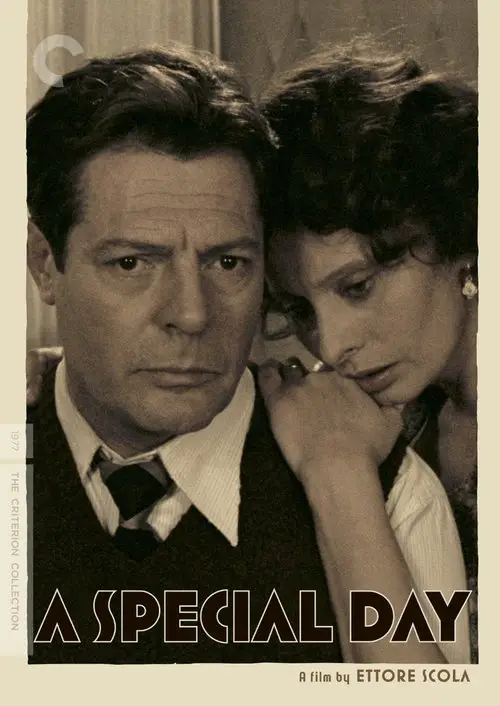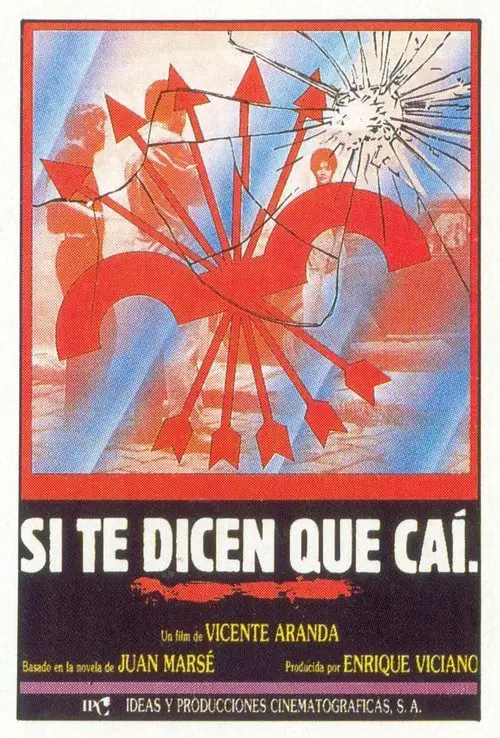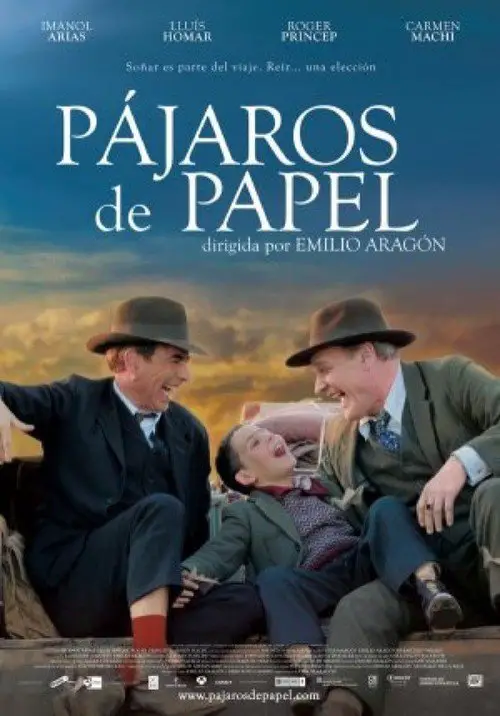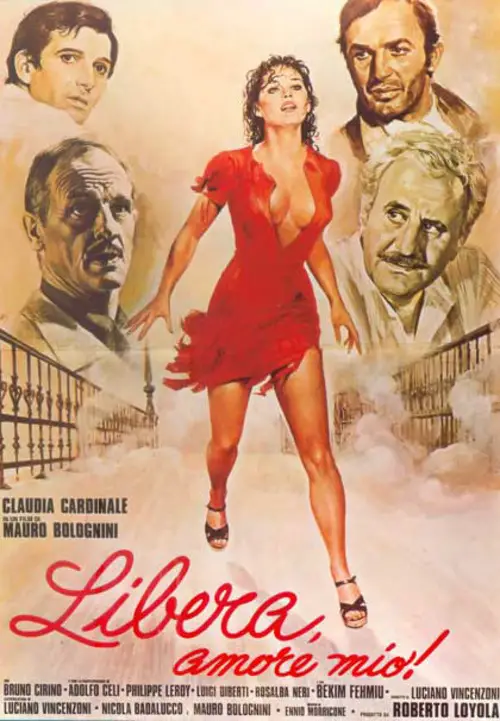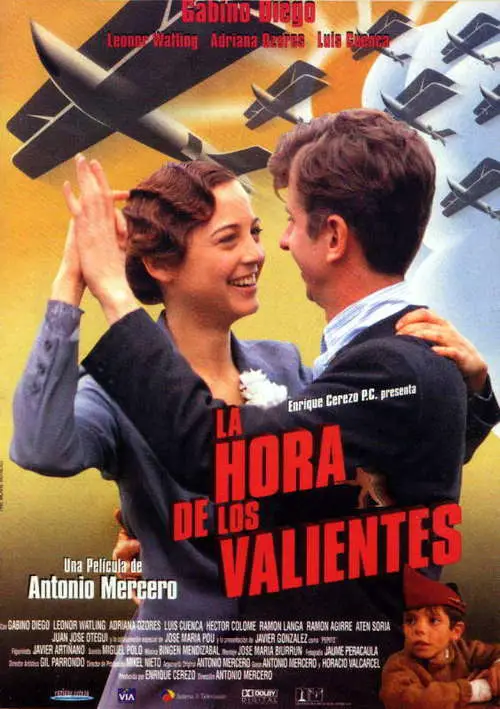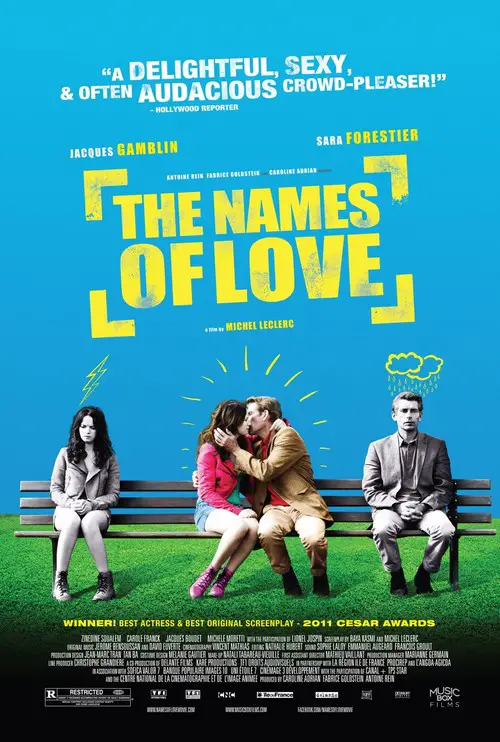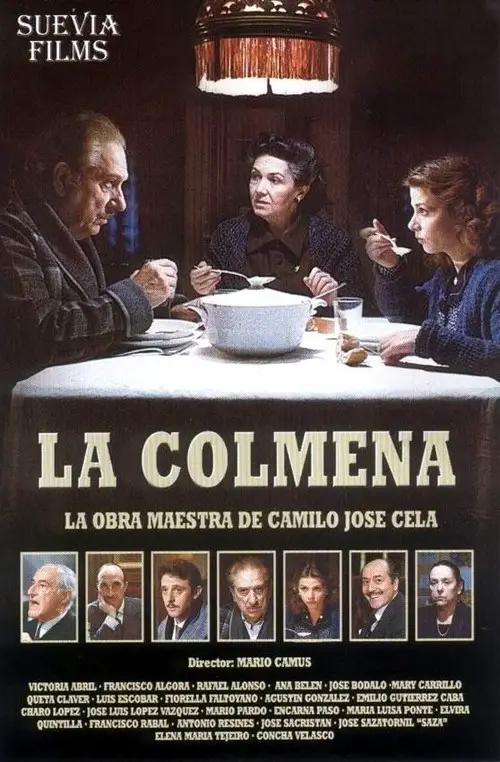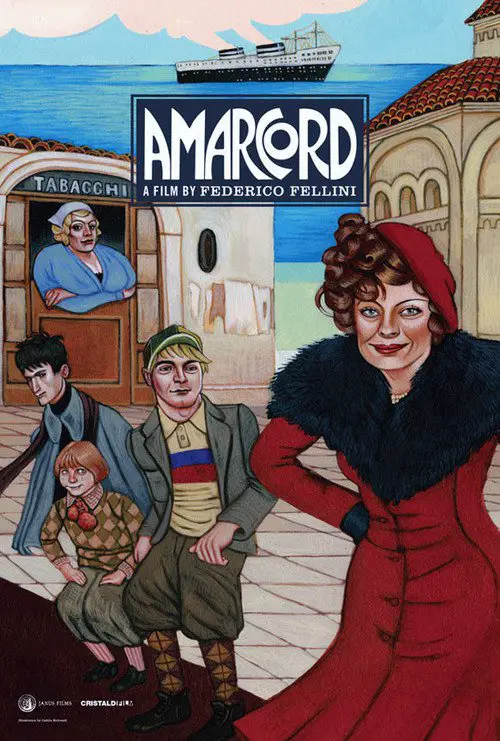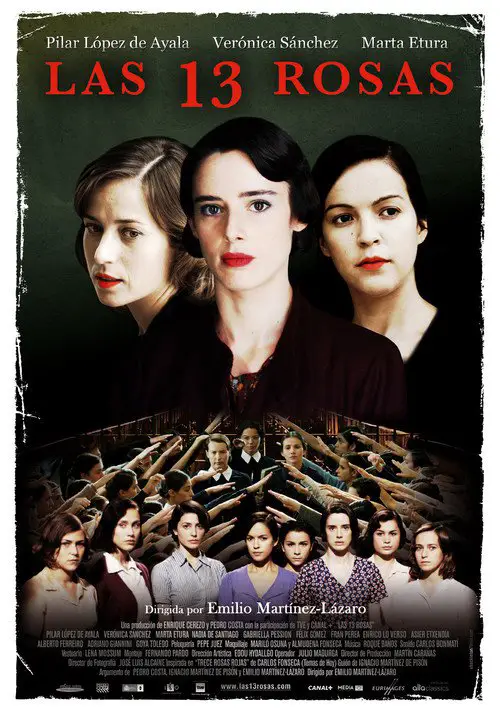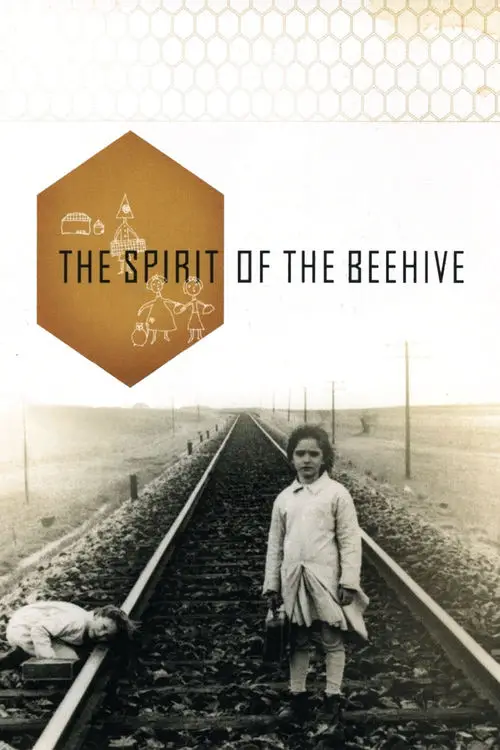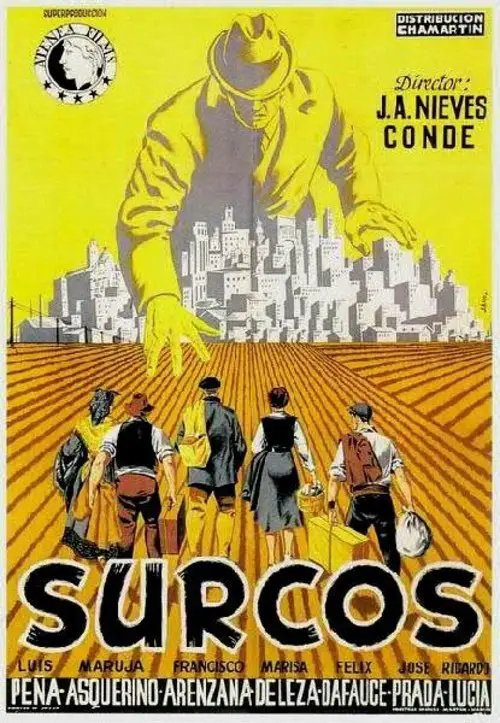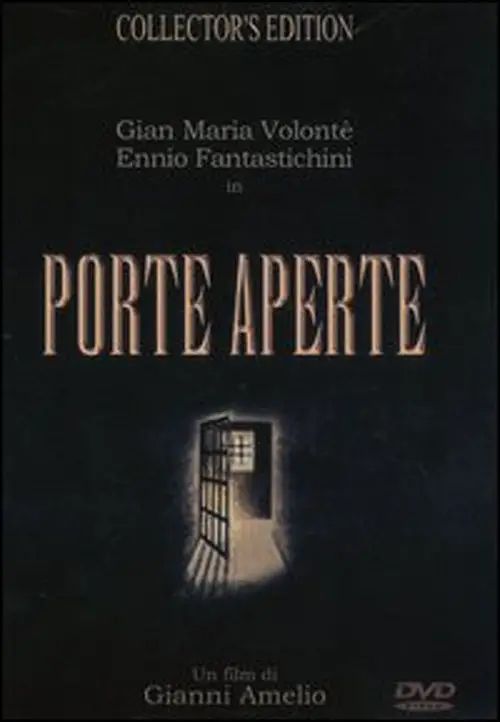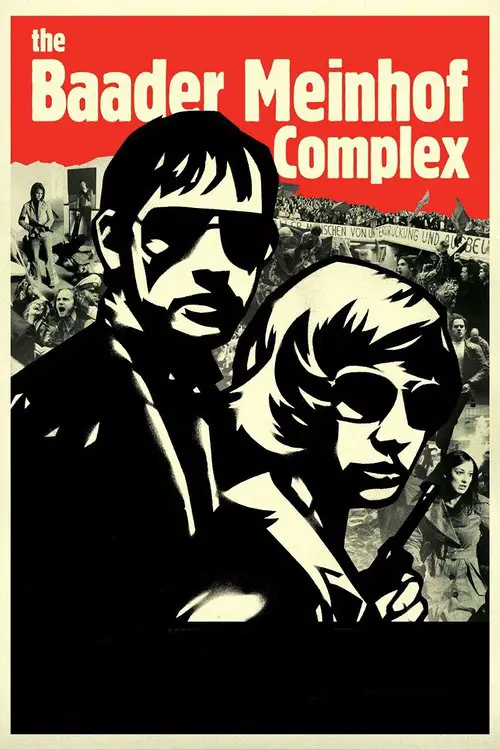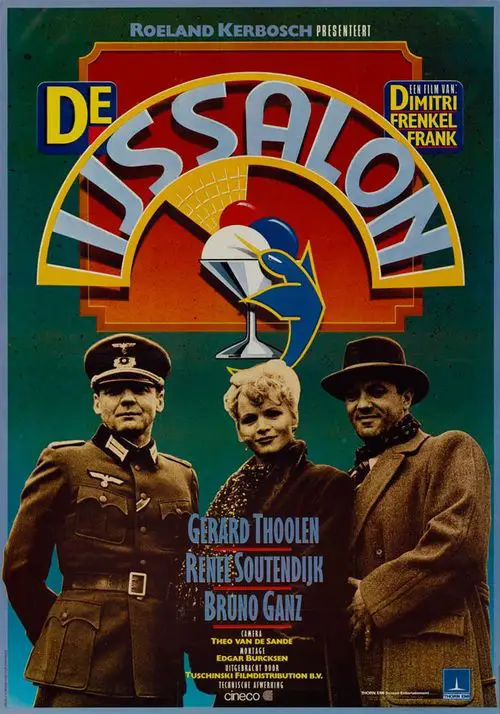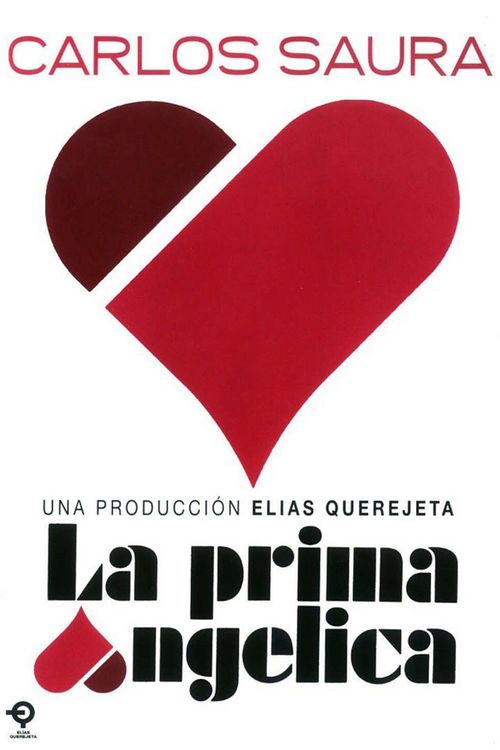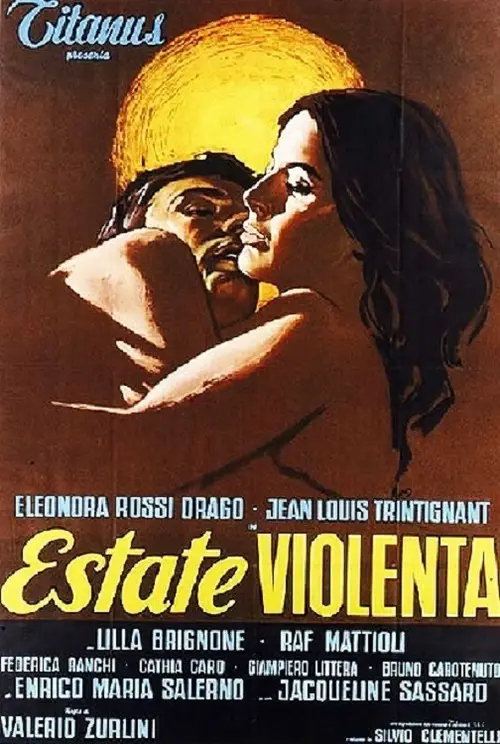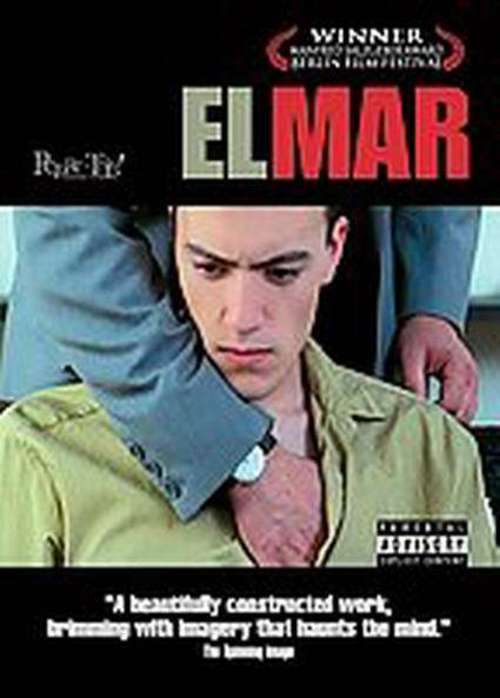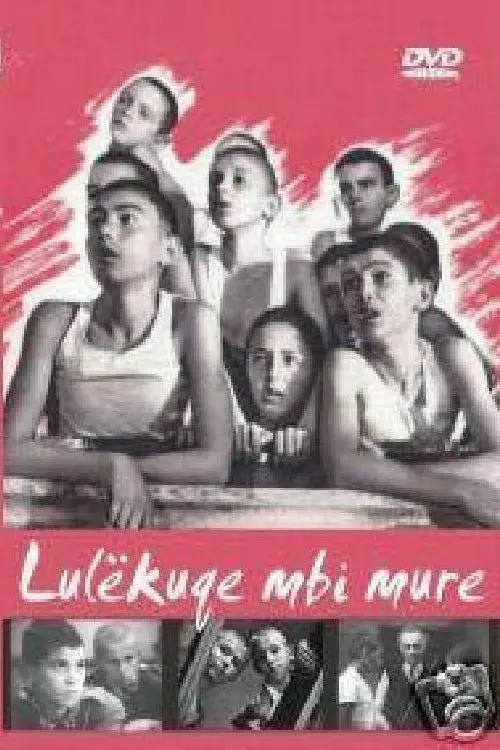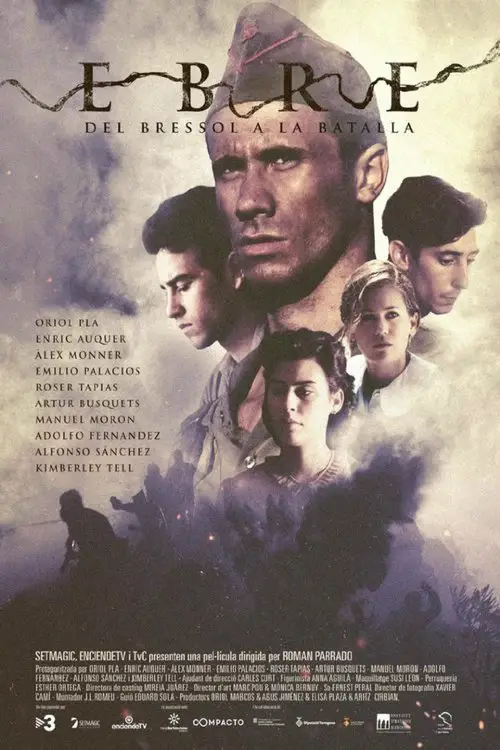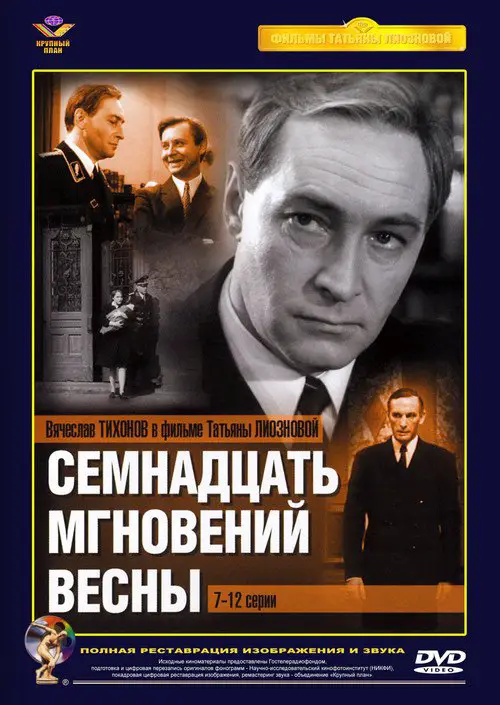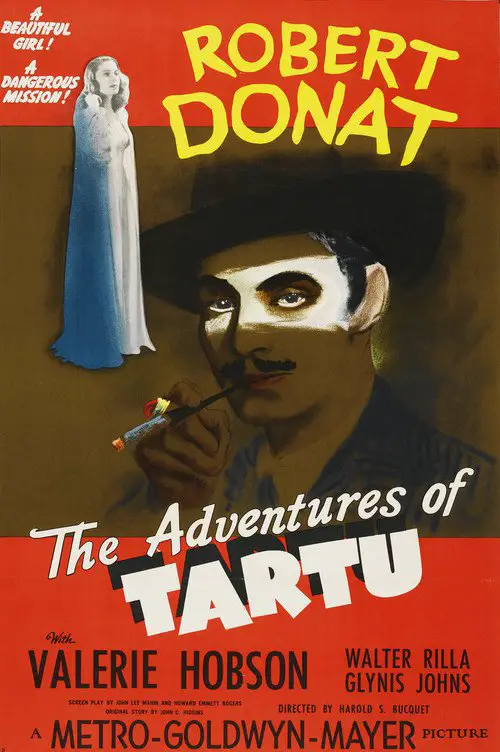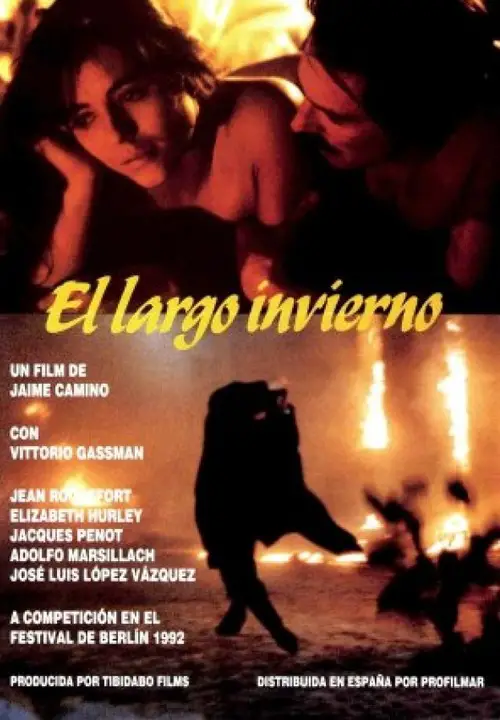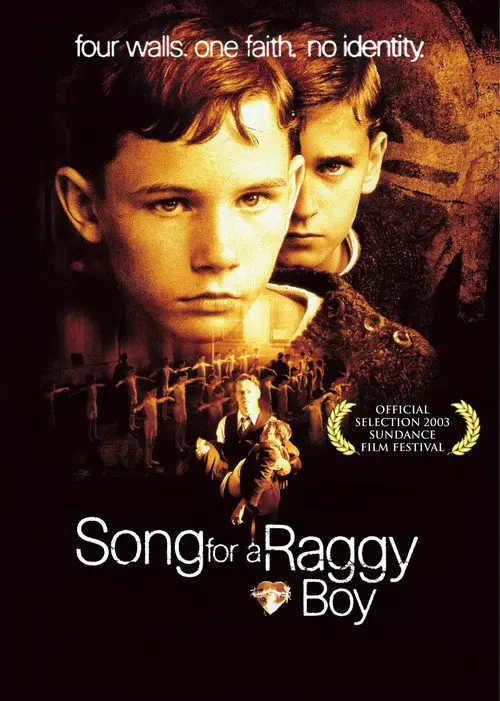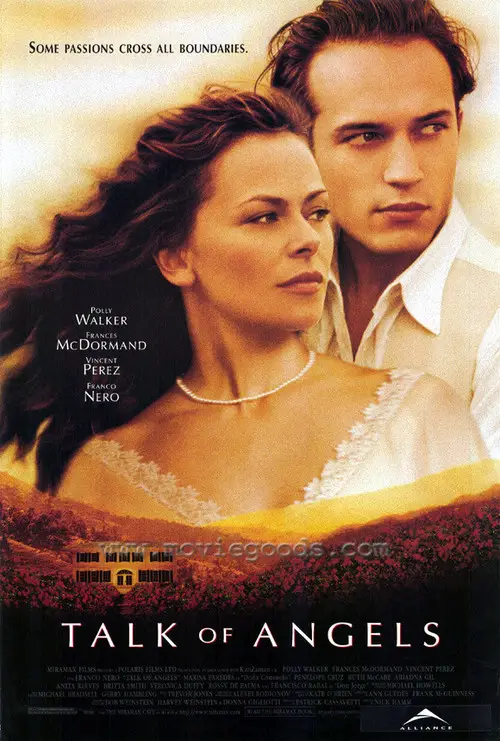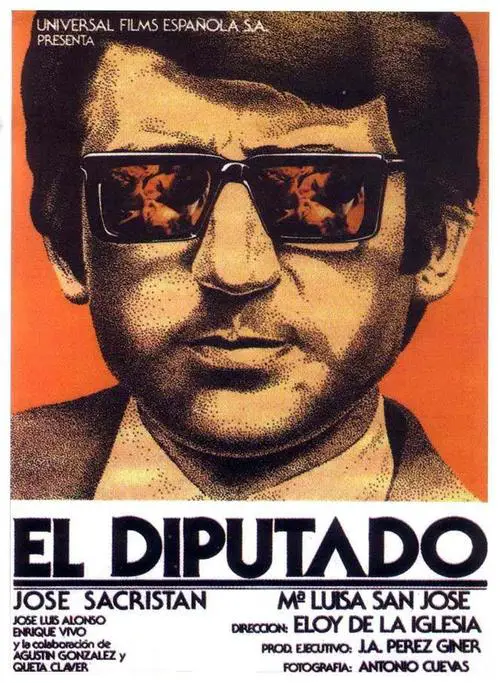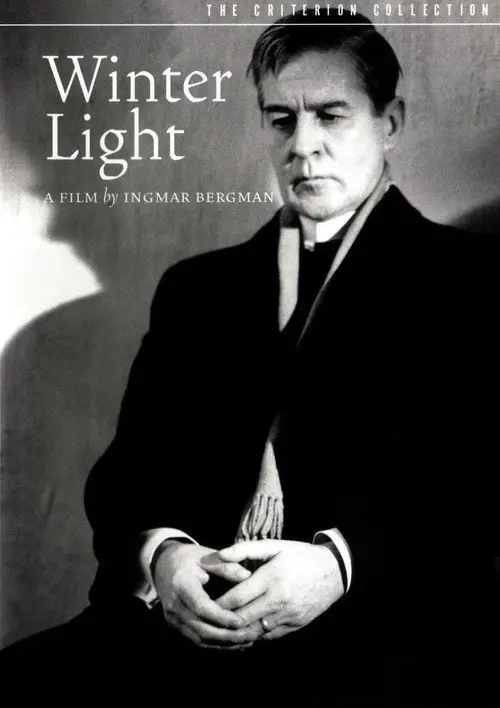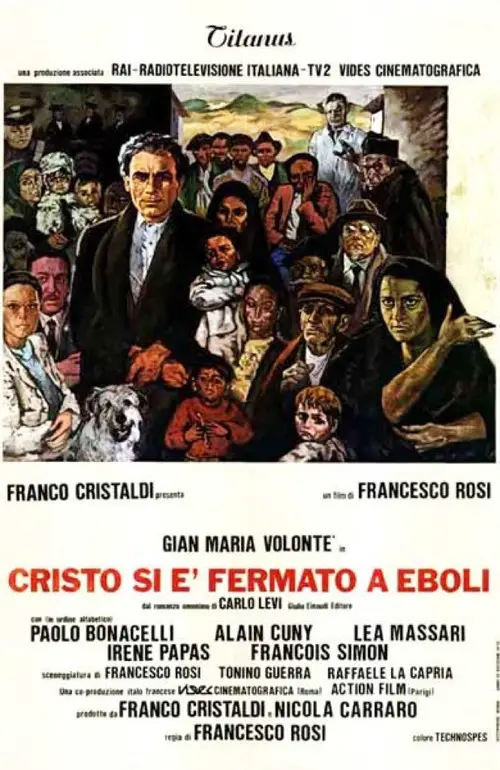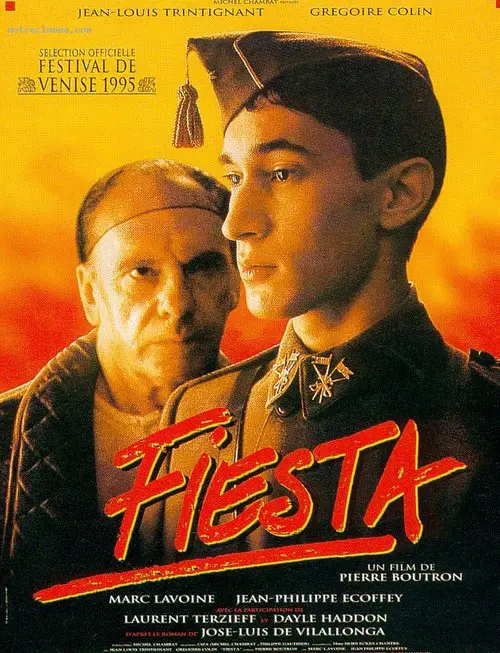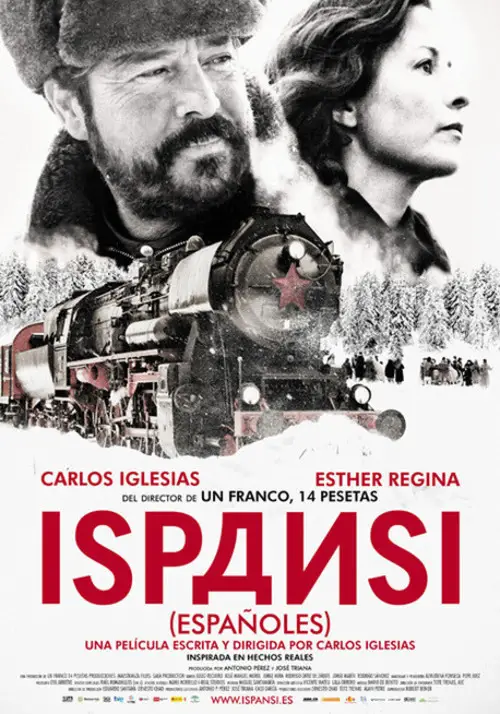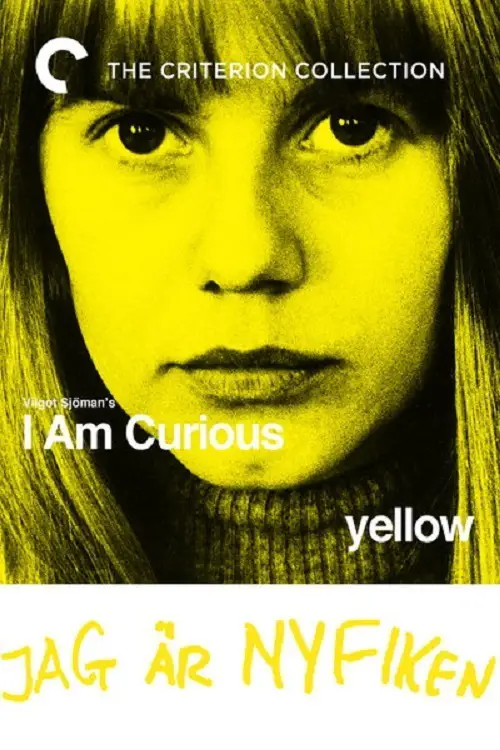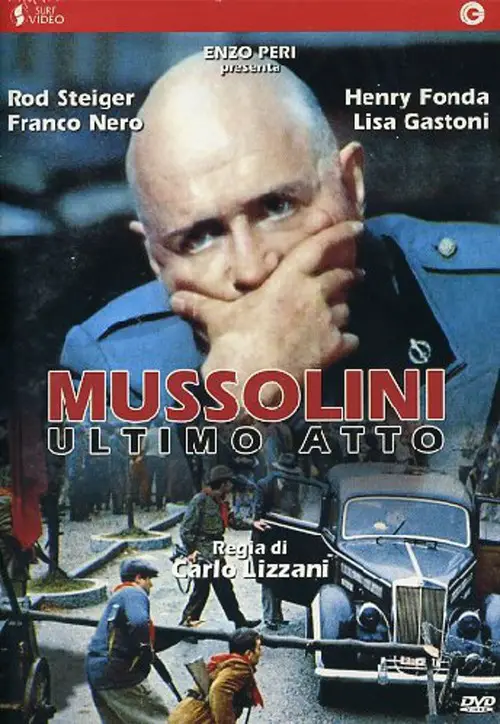Confidential Agent (1945)
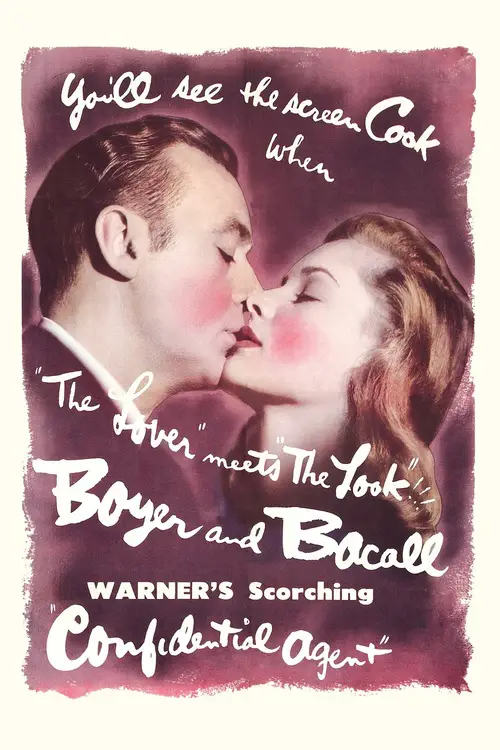
Similar movies
The movie narrates the story of David Carr, an unemployed worker and member of the Communist Party of Great Britain. In 1936 he decides to fight for the Republican side in the Spanish Civil War, an anti-fascist coalition of liberals, communists and anarchists. Similar to George Orwell's experiences documented in Homage to Catalonia, he joins the POUM worker militia and witnesses first hand the betrayal of the Spanish revolution by the Stalinists, loyal only to the dictat of Moscow.
Paulino and Carmela are husband and wife, troubadours touring the countryside during the Spanish Civil War. They are Republicans, and with their mute assistant, Gustavete, they journey into rebel territory by mistake. They are arrested, fear a firing squad, and receive a reprieve from an Italian Fascist commander who loves the theatre. He arranges a performance for his troops, bargaining with Paulino to stage a burlesque of the republic in exchange for the actors' freedom. Will the fiery and patriotic Carmela consent?
When the professor and writer Lola Sánchez is assigned to write a column in the newspaper about the Spanish Civil War, she researches and finds for the first time about the shooting of Rafael Sánchez Mazas. Lola has lost her passion for writing, and she becomes intrigued about Rafael, who was a writer and journalist that returned to Spain from the Italy of Mussolini and founded the fascist party Spanish Falange, becoming advisor of the leader Jose Antonio Primo de Rivera. When the lefts won the election in 1936, the Falange became illegal, and later there was a military coup d'stat. Rafael miraculously escaped from the shooting and was spared by an unknown soldier. Lola decides to write a book about the historic event and to disclose the identity of the unknown soldier.
At the end of the Spanish civil war, Fando, a boy of about ten, tries to make sense of war and his father's arrest. His mother is religious, sympathetic to the Fascists; his father is accused of being a Red. Fando discovers that his mother may have aided in his father's arrest. Sometimes we witness Fando imagining explanations for what's going on; sometimes we see him at play, alone or with his friend Thérèse. Oedipal fantasies and a lad's natural curiosity about sex and death mix with his search for his mother's nature and his father's fate. Will Fando survive the search?
At the outbreak of the Spanish Civil War, the nun Maria is forced to flee her convent. She takes refuge in a brothel, until it is liberated by a woman's anarchist group. Maria joins the group and eventually goes to the front. The women's group faces the problems of fighting not only the nationalists, but also factions on the left seeking to impose a more traditional military structure. Written by Brian Rawnsley
It is the real story of Giorgio Perlasca (Luca Zingaretti). During the 1920s he was an Italian Fascist supporter, fighting in Africa an in the Spanish civil war where he deserved a safe conduct for Spanish embassies. After some years, disillusioned by fascism, he is a fresh supplier for the Italian army. In the war years he is in Budapest for his business. He lives an easy life there, well introduced into the Hungarian high society, without any problem coming from the war situation. When the Nazi occupied Hungary, in 1944, instead to leave (Italy had already surrendered to the Allies) he escaped to the Spanish embassy in Budapest using his old safe conduct and becoming a Spanish citizen, changing name into Jorge Perlasca. He starts working as a diplomat here. When Sanz Briz (Geza Tordy), the Spanish consul, is removed, Perlasca immediately substitutes him, like if he was officially appointed from Spanish authorities... Written by 1felco
The film centres on Moncho and his coming-of-age experience in Galicia in 1936. Moncho develops a close relationship with his teacher Don Gregorio who introduces the boy to different things in the world. While the story centres on Moncho's ordinary coming-of-age experiences, tensions related to the looming Spanish Civil War periodically interrupt Moncho's personal growth and daily life.
In 1939, American Tom Martin, who fought in the Spanish Civil War, awaits execution at the hands of the Fascist victors when reporter Augusta 'Gusto' Nash, for a scoop, aids him in an audacious escape. Of course, Tom tries to romance Gusto; but though she likes him, her career comes first, and Tom himself prefers freedom-fighting to settling down. Comedy becomes drama as their mixed feelings lead them on a circuitous path through the deepening chaos and catastrophe of the early days of World War II.
Manuel Artiguez, a famous bandit during the Spanish civil war, has lived in French exile for 20 years. When his mother is dying he considers visiting her secretly in his Spanish home town. But his biggest enemy, the Spanish police officer Vinolas, prepared a trap at the hospital as a chance to finally catch Artiguez.
Private detective Philip Marlowe is asked by a publishing executive, Adrienne Fromsett, to locate the wife of her boss, publisher Derace Kingsby. Earlier she had sent her husband a telegram saying she was heading to Mexico to marry Chris Lavery. However Kingsby had recently seen Lavery in the neighbouring Bay City. Marlowe pursues his investigation at the Kingsby's lakeside cottage.
Set in Fascist Italy before the outbreak of World War II, the story centers on Giannini's character, an anarchist who stays in a brothel while preparing to kill Benito Mussolini. Giannini's character, while preparing to assassinate Mussolini, falls in love with one of the whores working in the brothel
Arising out of the horror of the Spanish Civil War, a candidate for canonization is investigated by a journalist who discovers his own estranged father had a deep, dark and devastating connection to the saint's life.While researching the life of Josemaria Escriva, the controversial founder of Opus Dei, the young journalist Robert uncovers hidden stories of his estranged father Manolo, and is taken on a journey through the dark, terrible secrets of his familyâs past.
In the midst of World War II, the story of the affair of a young woman, married to a man bound to a wheelchair, with a desertor from the Italian army, intertwines with that of the grab of power of a very fanatical local fascist leader, who gets the hold with a massacre of Pacific opposers, among them, the father of the young desertor. Oppresive fog covers both dramas, as a reminder of how values such as courage, love and truth are fading.
"The Anarchist's Wife" is the story of Manuela who is left behind when her husband Justo fights for his ideals against Franco's Nationalists during the Spanish Civil War. He is deported to a concentration camp, and upon his release, continues the fight against nationalism in the French resistance. Years, pass without a word from him, but his wife never gives up hope of seeing him again.
The film is set during the late 1930s: the occasion is the first meeting between Mussolini and Hitler. Left alone in her tenement home when her fascist husband runs off to attend the historic event, Sophia Loren strikes up a friendship with her homosexual neighbor Mastroianni. As the day segues into night, Loren and Mastroianni develop a very special relationship that will radically alter both of their outlooks on life.
In the post Spanish civil war years, Catalan kids would sit in circles among the ruins and tell stories, known as "aventis" (the film's original title in Catalan, its original language). These tales mix war stories, local gossip, comic book characters, fantasy and real events. The "aventis" told in this film are told in flashback. In the mid 80s, 45 or so years after the age of the "aventis," a doctor and a nurse-nun (who grew up together, and now are co-workers in a hospital) identify the corpse of one of the main characters of the "aventis" of their childhood and adolescence. Besides the interesting flashbacks - a chronical of the Civil War in a "typical" Barcelona microcosm itself, the discovery of this body (belonging to someone long presumed dead) leads to other surprises and unresolved doubts, several decades later.
Jorge and Enrique are two artist in the post Spanish Civil War times that adopt an orphan child called Miguel. With a varieté company that travel around the country, Jorge and Enrique see the horrors left by the war meanwhile the Republic Army watch Jorge and the rest of the company suspecting that some of them collaborate with the rebels opposite to the Francoist Regime.
Director Mauro Bolognini inserts this story in Fascist Italy, with careful attention to details. The couple formed by Matteo Zannoni (Bruno Cirino) and Libera Valente (Cardinale) can't bear fascism. They move constantly between cities, settling down in Modena, where Libera quickly collides with the fascist political commissar Franco Testa (Philippe Leroy). Libera has to suffer awful moments due to her attachment to the resistance, and to the political and sexual harassment from Testa.
After the Spanish Civil War breaks out, the Prado Museum is being evacuated. One of the guards finds a painting by the master, Goya, and takes it to prevent damage to the work of art. In the interim, he meets a young lady with whom he falls in love. Assisted by her and her family members, the soldier attempts to save Goya's masterpiece intact amidst the war and violence.
In late 1930s Ferrara, Italy, the Finzi-Continis are a leading family: wealthy, aristocratic, and urbane; they are also Jewish. Their adult children, Micol and Alberto, gather a diverse circle of friends for tennis and parties at their villa with its lovely grounds, and try to keep the rest of the world at bay. But tensions between them all grow as anti-Semitism rises in Fascist Italy, and even the Finzi-Continis will have to confront the Holocaust.
Bahia Benmahmoud, a free-spirited young woman, has a particular way of seeing political engagement, as she doesn't hesitate to sleep with those who don't agree with her to convert them to her cause - which is a lot of people, as all right-leaning people are concerned. Generally, it works pretty well. Until the day she meets Arthur Martin, a discreet forty-something who doesn't like taking risks. She imagines that with a name like that, he's got to be slightly fascist. But names are deceitful and appearances deceiving..
As in the novel of the same title from Camilo Jose Cela, "La Colmena" is a sad composition with the stories of many people in the Madrid of 1942, just the postwar of the spanish civil war. The main theme of the film is the contrast between the poets, surviving close to misery under the Franco's regime, and the winners of the war, the emerging class of the people that makes easy money with illegal business.
In the aftermath of the Spanish Civil War, Ana, a sensitive seven-year-old girl in a rural Spanish hamlet is traumatized after a traveling projectionist screens a print of James Whale's 1931 "Frankenstein" for the village. The youngster is profoundly disturbed by the scenes in which the monster murders the little girl and is later killed himself by the villagers. She questions her sister about the profundities of life and death and believes her older sibling when she tells her that the monster is not dead, but exists as a spirit inhabiting a nearby barn. When a Loyalist soldier, a fugitive from Franco's victorious army, hides out in the barn, Ana crosses from reality into a fantasy world of her own.
Tommaso Scalia is a man who commits three murders: he killed his superior who sacked him, he kills the man who replaced him, and he kills his own wife. He wants a quick trial and an early execution, but an earnest, principled assistant judge looks for a way to save the murderer from being shot, because he does not belive in capital punishment. Although he manages to save the man initially, he will pay a high price for it.
Der Baader Meinhof Komplex depicts the political turmoil in the period from 1967 to the bloody "Deutschen Herbst" in 1977. The movie approaches the events based on Stefan Aust's standard work on Die Rote Armee Fraktion (RAF). The story centers on the leadership of the self named anti-fascist resistance to state violence: Andreas Baader, Ulrike Meinhof and Gudrun Ensslin.
After losing his father, 10-year-old Carlos arrives at the Santa Lucia School, which shelters orphans of the Republican militia and politicians, and is taken in by the steely headmistress, Carmen, and the kindly professor, Casares. Soon after his arrival, Carlos has a run-in with the violent caretaker, Jacinto. Gradually, Carlos uncovers the secrets of the school, including the youthful ghost that wanders the grounds.
When the single middle-aged Luis travels from Barcelona to bury the remains of his mother in the vault of his family in Segovia, he is lodged by his aunt Pilar in her old house where he spent his summer of 1936 with her. He meets his cousin Angelica, who was his first love, living on the first floor with her husband and daughter, and he recalls his childhood in times of the Spanish Civil War entwined with the present.
Summer, 1943: wealthy youth in the Riccione district of Rimini play while the war gets closer. Carlo Caremoli, a young man who follows the crowd, has found ways to avoid military service. Then, on the beach, he meets Roberta, a war widow with a child. Roberta's mother warns Roberta to avoid Carlo, but to her, he seems attentive and to her daughter he is kind. Romance develops. Within a few weeks, Roberta is risking everything. Can there be a resolution between passion, on the one hand, and war, duty, and social expectation on the other?
In 1938 the Spanish Civil War has worn both armies and destroyed the mood of the people of both sides. The differences between national Republicans however are revealing: The fascist side has the unconditional support of arms and men facilitated by Hitler and Mussolini while the Republican army is ignored by a Europe more concerned of a possible World War than the fate of Spain. Thousands of young people between 17 and 18 rows are called by the republican army. These are the main characters, four young for whom the Battle of the Ebro will be the first direct contact with the war. This film tells the story of these young people forced to leave behind innocence and into whistling bullets.
The series is based on a true story of a Russian spy Colonel Isaev (Stirlitz) in Fascist Germany during 17 days in very end of WWII. Stirlitz has worked his way to the very top of the Fascist hierarchy without being caught. However, his "colleagues", top Hitler's officers Borman, Mueller, Schellenberg are beginning to suspect him. Stirlits is constantly walking on the edge between his two identities, sending information to Russia, while skillfully maintaining the appearance of loyalty to fascist regime.
British Captain Terence Stevenson (Robert Donat) accepts an assignment even more dangerous than his everyday job of defusing unexploded bombs. Fluent in Romanian and German and having studied chemical engineering, he is parachuted into Romania to assume the identity of Captain Jan Tartu, a member of the fascist Iron Guard. He makes his way to Czechoslovakia to steal the formula of a new Nazi poison gas and sabotage the factory where it is being manufactured.
In 1939, Ramon (Jacques Penot) was a young man, caught up in his Barcelona family's involvement on the Republic side in the brutal Spanish Civil War. He and his family fled into exile ahead of Franco's troops. Now it is many years later, and he has come back to see how his old homestead fared in the intervening years. The only person he can find who is able to remember those years clearly is his family's old butler Claudio (Vittorio Gassman). This film is a sequel to the 1975 film by director Jaime Camino, Largas Vacaciones del 36.
Song For a Raggy Boy is a 2003 film directed by Aisling Walsh. It is based on the book of the same name by Patrick Galvin and is based on true events. The film is set in 1939, on the brink of World War II, in the St. Judes Reformatory School, a ruthless Irish school for boys. Gray, gloomy and ruled by the sadistic Brother John (Iain Glen), the school prefers punishment to rehabilitation. But new lay teacher William Franklin (Aidan Quinn), fresh from the frontline of the Spanish Civil War, fights to liberate the boys from their oppressors. Two young boys have key roles in the film. Patrick Delaney 743 (Chris Newman) arrives at the school aged 13 and a half. He, like all the boys, is allocated a number which the priests use. Franklin, however, always uses the boys' names. Delaney is an attractive boy and he receives the unwelcome attentions of a pedophile priest, Brother Mac (Marc Warren), who molests and rapes the boy in the school toilets. The boy tells of his ordeal to a visiting...
This is the story of a young Irish woman who comes to Spain to escape from the pressures she feels about her impending marriage to a political activist in Ireland. But in Spain in the 1930's, taking a job of governess in a wealthy family, she finds the same kinds of political unrest. In fact, it isn't long before she finds herself attracted to a married man who is similarly involved in the struggle against fascism and Franco. This awakens her to her nature that brings her to such men and resolves for her what she must do about the life she left in Ireland
Madrid, Roberto Orbea is a member of the Spanish communist party. He is married to Carmen, and he has been elected as Deputy in the first democratic elections in Spain. But his enemies, the fascist, know his double life. Roberto likes boys, and they hire Juanito to seduce the politician. They fall in love...
Master craftsman Ingmar Bergman explores the search for redemption in a meaningless existence. In this stark depiction of spiritual crisis, small-town pastor Tomas Ericsson (Gunnar Björnstrand) performs his duties mechanically before a dwindling congregation. When he is asked to assist with a troubled parishionerâs (Max von Sydow) debilitating fear of nuclear annihilation, Tomas is terrified to find that he can provide nothing but his own uncertainty.
1936. Rafael, son of a Spanish nobleman, leaves the French Catholic institution where he was resident, recalled in his country by his father. Senior officer in Franco's army, it is that his son is involved in the civil war that tore Spain. Before joining the front, Rafael is assigned to a unit whose main mission is to take care of prisoners and execute subversive elements. The garrison was commanded by Colonel Masagual, a friend's father Rafael. Very old regime , the colonel who lives openly with his homosexuality Casado, his aide, is an ambiguous character, melancholy and cynical lucidity.
This expansive Greek drama follows a troupe of theater actors as they perform around their country during World War II. While the production that they put on is entitled "Golfo the Shepherdess," the thespians end up echoing scenes from classic Greek tales in their own lives, as Elektra (Eva Kotamanidou) plots revenge on her mother (Aliki Georgouli) for the death of her father, and seeks help from her brother, Orestes (Petros Zarkadis), a young anti-fascist rebel.
Lena, aged twenty, wants to know all she can about life and reality. She collects information on everyone and everything, storing her findings in an enormous archive. She experiments with relationships, political activism, and meditation. Meanwhile, the actors, director and crew are shown in a humorous parallel plot about the making of the film and their reactions to the story and each other. Nudity, explicit sex, and controversial politics kept this film from being shown in the US while its seizure by Customs was appealed.
A group of Spanish refugees try to organize protests from France. Their network is under constant threat by the police and some of them have recently been arrested. The main character (played by Yves Montand) dedicated his whole life to the battle but he feels forever estranged. He doesn't find his place nor in his adoptive country (France) nor in love.
But this film is not about the story, it's all about style. Alain Resnais has an original approach in this film and this is the thing that makes this film worth watching.
© Valossa 2015–2026
| Privacy Policy
